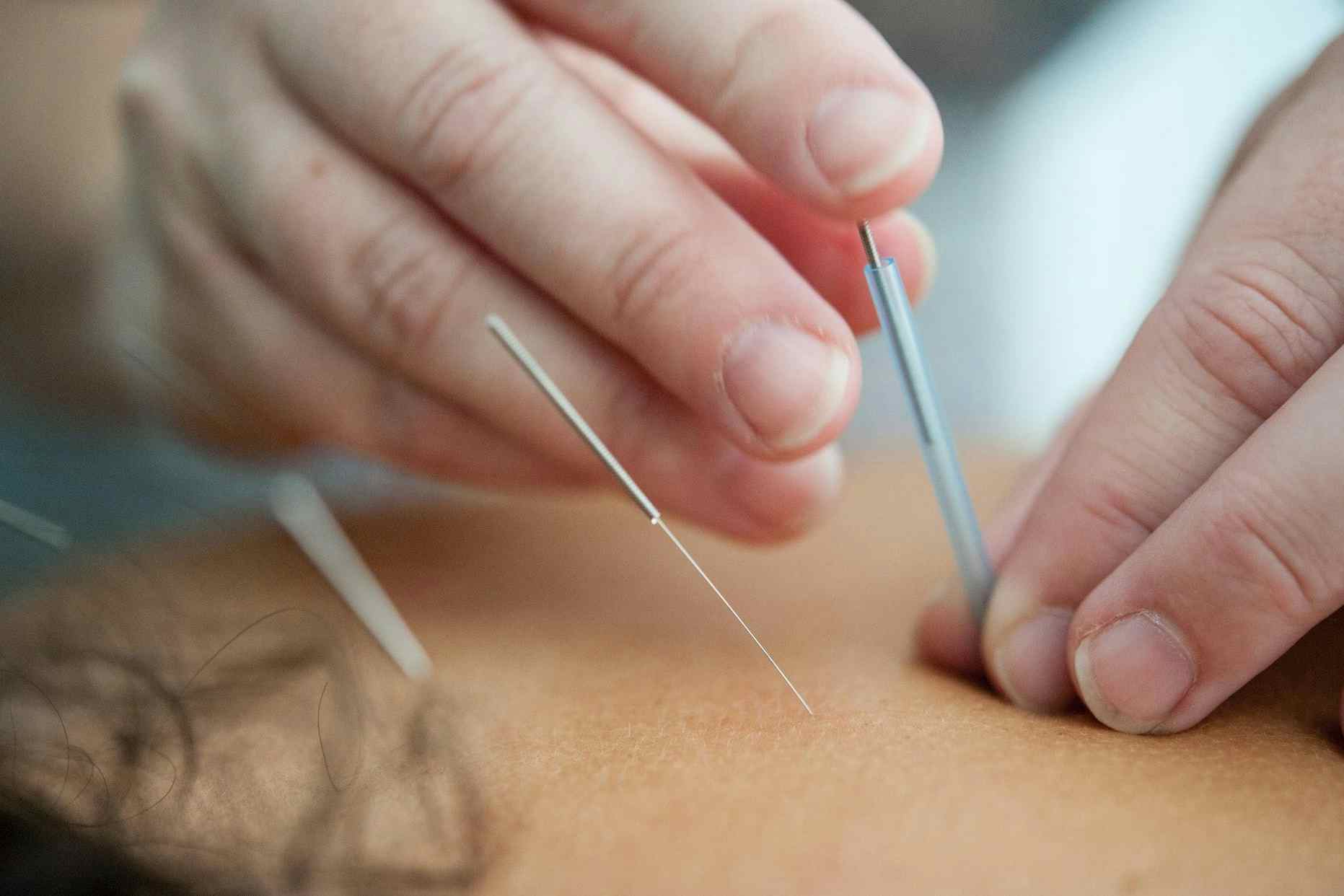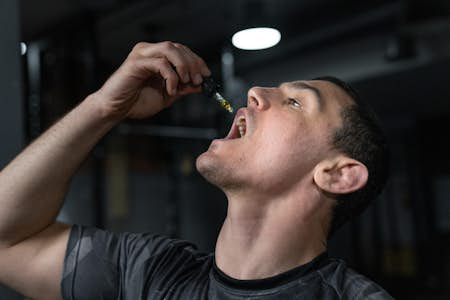Acupuncture is a common alternative practice for issues such as back pain and migraines.
Originating from traditional Chinese medicine, acupuncture involves inserting fine needles into specific points across the body to relieve pain and reduce the symptoms of certain health conditions.
If you’re trying out acupuncture for the first time, you might worry about feeling some pain.
However, acupuncture doesn't typically hurt - this is a common misconception about the treatment.
Let's explore exactly how this practice works, including what acupuncture feels like and any potential side effects, to put your mind at ease.
What is acupuncture?
Acupuncture is a treatment found in traditional Chinese medicine and used in many healthcare centres and GP surgeries across the UK.
During an acupuncture session, practitioners insert fine needles into the body. This method is an alternative, complementary treatment for various medical conditions, such as chronic pain relief.
Western medical acupuncture stimulates sensory nerves in the skin and muscles, with many specialists continuing to follow traditional acupuncture practices.
In the UK, the National Institute for Health and Care Excellence (NICE) only recommends acupuncture as a treatment option for chronic pain, chronic tension headaches and migraines.
Although acupuncture is not dangerous, there is a lack of evidence concerning its effectiveness for other conditions.
How does acupuncture work?
Traditional acupuncture focuses on the body’s energy. In Chinese medicine, this energy is called "life force" or "Qi" and flows through the body in channels called meridians.
According to traditional acupuncture practitioners, the flow of Qi (pronounced “chee") controls illness and pain. Pain can flare up in certain areas if Qi does not flow freely throughout the body.
Inserting acupuncture needles at specific points of the body can control the flow of Qi and relieve pain. These are often called acupuncture points or acupoints, with over 300 identified across the body.
Inserted just under the skin or slightly deeper if they need to reach the muscle, these needles remain in place for as long as the acupuncturist deems necessary, but typically for up to 30 minutes.
Each needle is pre-sterilised and disposed of after use to ensure hygienic, safe treatment for each patient.
There are also a few additional acupuncture practices, such as moxibustion. This involves holding heated sticks near any acupuncture needles to warm the acupuncture points.
Almost 3,000 practising acupuncturists in the UK are part of the British Acupuncture Council. These licensed acupuncturists are fully trained to perform this treatment for patients of all medical backgrounds and accessibility needs.
Benefits of acupuncture
Acupuncture has many benefits, particularly for those who struggle with chronic, long-term pain.
Acupuncture can improve various health conditions, such as:
- Migraines
- Arthritis
- Back pain
- Menstrual cramps
- Dental pain
- Neck pain
Acupuncture is an effective treatment for muscle soreness. An acupuncturist will insert a needle into your tightest muscle area, known as your trigger point. The muscle contracts, allowing it to soften and relieving any pain in that area.
Acupuncture also releases endorphins in the body, encouraging pain relief and almost acting as a natural painkiller for many patients.
There are numerous additional benefits to this alternative treatment. For some patients, acupuncture improves energy, sleep and even productivity.
What does acupuncture feel like?
As a practice that involves inserting needles into the skin, it is easy to see why many patients are apprehensive about a painful acupuncture session.
However, acupuncture doesn’t typically hurt.
Many people may feel a tingling sensation during acupuncture treatment, particularly as the needles first puncture the skin. However, it is rare to feel any significant pain.
You might also feel a certain heaviness or experience a dull ache during your acupuncture appointment.
Acupuncture needles are unlike other needles, such as those used for injections. They are long and fine, meaning they don't feel sharp or painful.
Acupuncture can feel different depending on the practitioner. For example, some acupuncturists may insert needles with more force or use a heavier technique, which can cause discomfort.
Ben Carrigan from Acupuncture West London told Health Times: "Most patients find acupuncture relaxing. On needle insertion, patients often describe a dull, slightly aching sensation, numbness or tingling that disappears after a few moments, or nothing at all. One may also feel a mild electrical sensation known as deqi indicating that the Qi at this point has been activated."
Tell your acupuncturist if you feel any pain that goes beyond mild discomfort during your session. They can remove painful needles and alter their methods to fit your treatment plan.
Painful pressure points
Although acupuncture is not painful, some acupoints are more sensitive than others.
If a needle comes into contact with a nerve, muscle or blood vessel, you might feel a more intense sensation in that area.
Some patients also experience a little more discomfort in their extremities, such as their hands and feet.
According to traditional Chinese medicine, acupoints on the feet are likely to cause slightly more pain as they hold a lot of important energy.
Side effects of acupuncture
It's unlikely for an acupuncture session to hurt. Still, this alternative therapy has a few rare, typically short-term, side effects.
After your session, you might experience some discomfort at the points where the needles punctured your skin.
Some patients may experience drowsiness or nausea after an acupuncture appointment, with mild bleeding or bruising around acupuncture points.
If you have a bleeding disorder such as haemophilia, you must speak to a healthcare professional before exploring acupuncture.
You should also speak to a doctor if you have a pacemaker fitted, as some clinics practice electroacupuncture treatment.
The acupuncturist will connect an electrical device to the needles during this treatment, creating a stimulating electrical current. This can lead to the malfunction of your pacemaker.
Understanding acupuncture and pain
As an alternative medicine, you may be wary of trying out acupuncture for the first time. However, this practice is a common treatment for pain relief, including chronic headaches and back pain.
It aims to control the flow of Qi through the body, inserting fine needles into specific points to relieve pain, improve quality of life and promote general wellness.
The numerous health benefits of this practice make it a helpful treatment to consider.
Although you may experience a small amount of discomfort during or directly after your session, acupuncture doesn’t typically hurt.
The treatment can differ from person to person. For some, specific acupuncture points, such as the hands or feet, may be slightly more painful.
It is also essential to discuss any relevant existing health conditions with your doctor and acupuncturist before your first appointment, helping you develop an effective treatment plan that works for you.
Before exploring alternative therapies, it’s vital to ensure you know what’s really going on in your body.
With Scan.com, you can choose from 10 scan types at over 250 clinics nationwide to get a clear diagnosis and ensure you’re fully informed when you make choices around your treatment.
Visit Scan.com now to learn how it works and book your scan.








